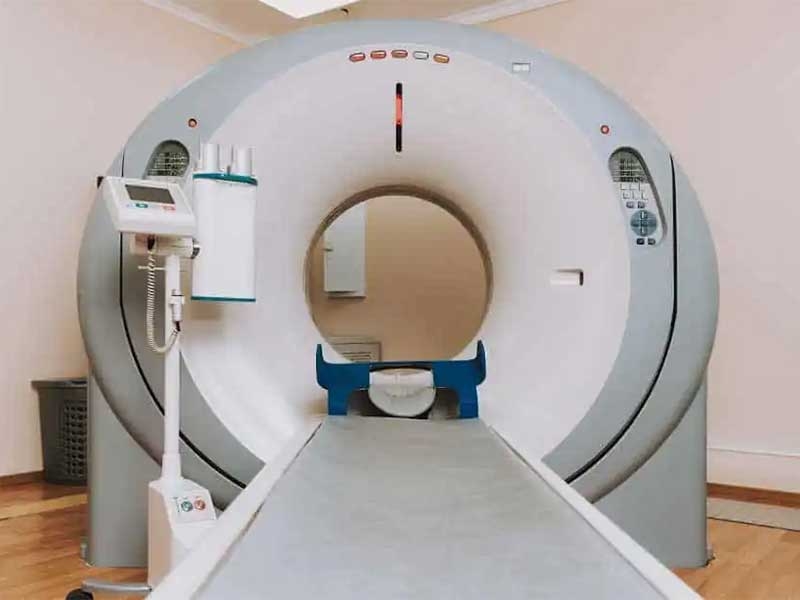Clinic Consultation in Kelowna / BC, is at the cutting edge of diagnostic imaging with its Magnetic Resonance Imaging (MRI) exam services. This advanced diagnostic tool provides detailed images of the body's internal structures using magnetic fields and radio waves, allowing for the non-invasive detection and evaluation of various conditions, including issues related to the brain, spine, joints, and internal organs. Our clinic boasts the latest MRI technology, operated by a team of highly trained radiologists and technicians who ensure the highest standards of safety and accuracy. Clinic Consultation emphasizes patient comfort and convenience throughout the MRI process, offering clear guidance on how to prepare for the exam and what to expect during the procedure. After the exam, our radiologists provide thorough analyses of the MRI scans, working closely with referring physicians to inform treatment decisions. For residents of Kelowna / BC, looking for comprehensive and reliable Magnetic Resonance exam services, Clinic Consultation is the preferred destination, known for our commitment to excellence in patient care and diagnostic precision.
Magnetic Resonance in Kelowna / BC

Watch our video about Magnetic Resonance
Magnetic Resonance in Kelowna / BC
What is an MRI?
Magnetic Resonance Imaging (MRI) is a highly advanced imaging technique that uses magnetic fields and radio waves to produce detailed images of the body’s internal organs and tissues. Unlike X-rays or CT scans, MRI does not use ionizing radiation, making it a safer option for many patients.
What is MRI Used For?
MRI is commonly used for diagnosing a wide range of medical conditions, particularly in areas like the brain, spine, joints, and internal organs. It helps detect injuries, tumors, infections, and structural abnormalities that are not easily visible through other imaging techniques.
How Does MRI Work?
MRI works by generating a strong magnetic field around the body, which aligns hydrogen atoms in the tissues. Radio waves are then used to disturb this alignment, and as the atoms return to their original position, they emit signals. These signals are captured by a receiver and converted into detailed digital images by a computer.
What are the Types of MRI?
High-Field MRI
This is the standard MRI, using a strong magnetic field to produce high-resolution images. It is often used for complex cases, such as neurological exams or small joint imaging, and provides very detailed images of soft tissues and organs.
Open MRI
For patients with claustrophobia or those uncomfortable in enclosed spaces, an open MRI machine offers more space while still providing quality images. Though the resolution may not be as high as a closed MRI, it is a more comfortable option for many.
Functional MRI (fMRI)
This MRI type is primarily used for brain studies, measuring brain activity by detecting changes in blood flow. It helps in mapping brain functions and is commonly used in neuroscience research or pre-surgical planning.
MRI with Contrast
This version uses a contrast agent, typically gadolinium-based, to enhance the visibility of certain areas, helping to detect tumors, inflammation, and abnormalities in blood vessels. It is often used in scans of the brain, heart, and other critical organs.
What Diseases Can MRI Detect?
MRI can identify a wide range of diseases, including tumors, aneurysms, multiple sclerosis, stroke, heart conditions, joint injuries, infections, and spinal issues. It’s also useful for liver and kidney disease, as well as evaluating nodules and cysts.
When is MRI Indicated?
MRI is indicated when detailed images are needed for diagnosis or monitoring of specific conditions. It is often recommended for suspected brain or spinal cord injuries, joint issues, cardiac problems, or when other imaging methods, like X-rays, don’t provide sufficient information.
Pre- and Post-Care for MRI
Before the exam, patients should inform their doctor about any metallic implants, pacemakers, or allergies to contrast agents. It’s important to avoid wearing clothing with metal parts. Post-exam care is minimal, and most patients can resume normal activities immediately. If contrast is used, it’s recommended to stay hydrated to flush it out of the body.
Contraindications for MRI
MRI may not be suitable for people with metallic implants like pacemakers, aneurysm clips, or hearing implants, as the magnetic field can interfere with these devices. Severe claustrophobia may also pose a challenge, although open MRI is an option. The use of contrast may be contraindicated in people with severe kidney conditions or allergies to gadolinium.
Alternatives to MRI
For patients unable to undergo MRI, alternative imaging methods include CT scans, Ultrasound, and X-rays. These methods vary in terms of detail and are chosen based on the specific area of the body being examined. CT scans are often used for bones and organs, while ultrasound is commonly employed for soft tissues.
MRI Services at Clinic Consultation
At Clinic Consultation, we offer state-of-the-art MRI services to help diagnose a wide range of conditions. Whether you need a brain MRI, musculoskeletal MRI, or another type of scan, our experienced team provides accurate, high-quality imaging in a comfortable setting.
Book an appointment today to schedule your MRI at Clinic Consultation and receive comprehensive diagnostic care.
Click the button below to schedule your appointment online.